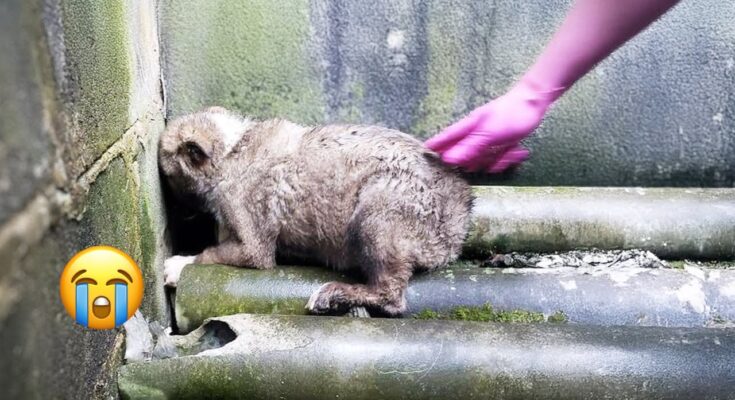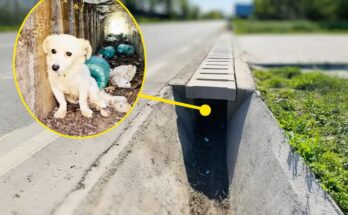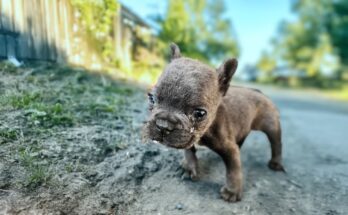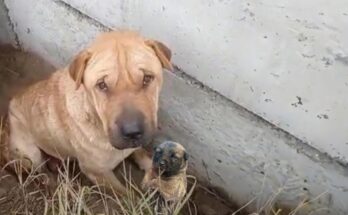After the rain had stopped and the streets began to empty, a tiny puppy sat alone on the cold pavement, its fur still soaked and clinging to its shivering body. It didn’t bark or whine—just stared, wide-eyed, at every passerby as though hoping one of them might be familiar. Its silent tears—barely noticeable—left damp streaks on its already wet face. There was something in its eyes: not just fear, but deep confusion and heartbreak, as if it couldn’t understand why it had been left behind.
Moments earlier, it had been standing beside someone it trusted. The person who used to carry it, feed it, maybe even cuddle with it at night. But now, that figure was gone—vanished into the crowd without looking back. The puppy kept glancing in the direction the person had walked, as if expecting them to return any second. But the minutes passed, and no one came.
What was it so afraid of? Not just the thunder that had passed, nor the unfamiliar streets, but something deeper: abandonment. The fear of being unwanted. Of being too small, too quiet, too inconvenient. It was afraid of being forgotten.
Despite the cars driving by and people hurrying home, no one stopped. The puppy flinched at every loud sound, every stranger’s footfall. It was terrified not only of what had happened—but of what might happen next.
Eventually, someone did kneel down—a gentle hand extended, a soft voice calling. The puppy hesitated. But after a moment, it took one cautious step forward, still trembling. There, in that moment, its fear began to ease—not completely, but enough to hope again. Enough to believe that not everyone would walk away.



